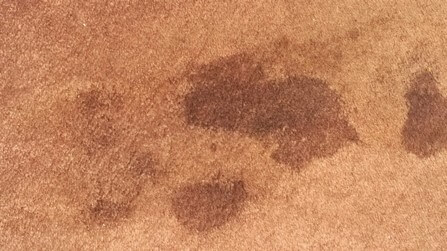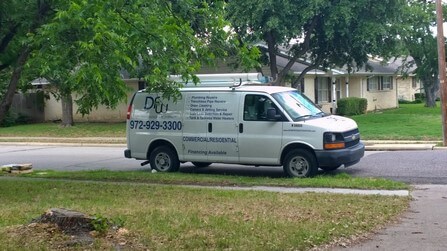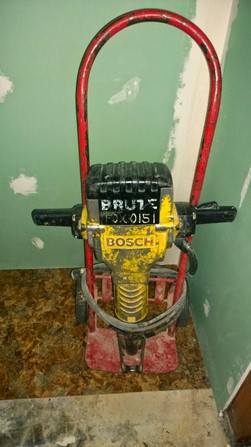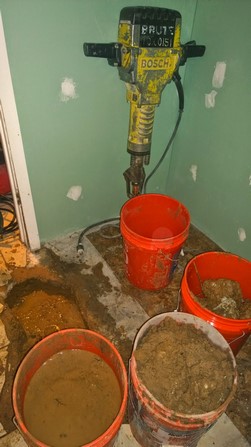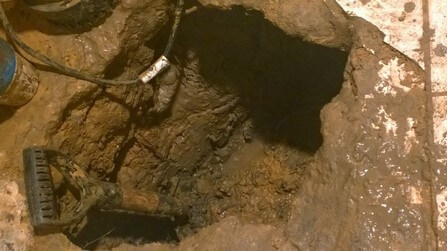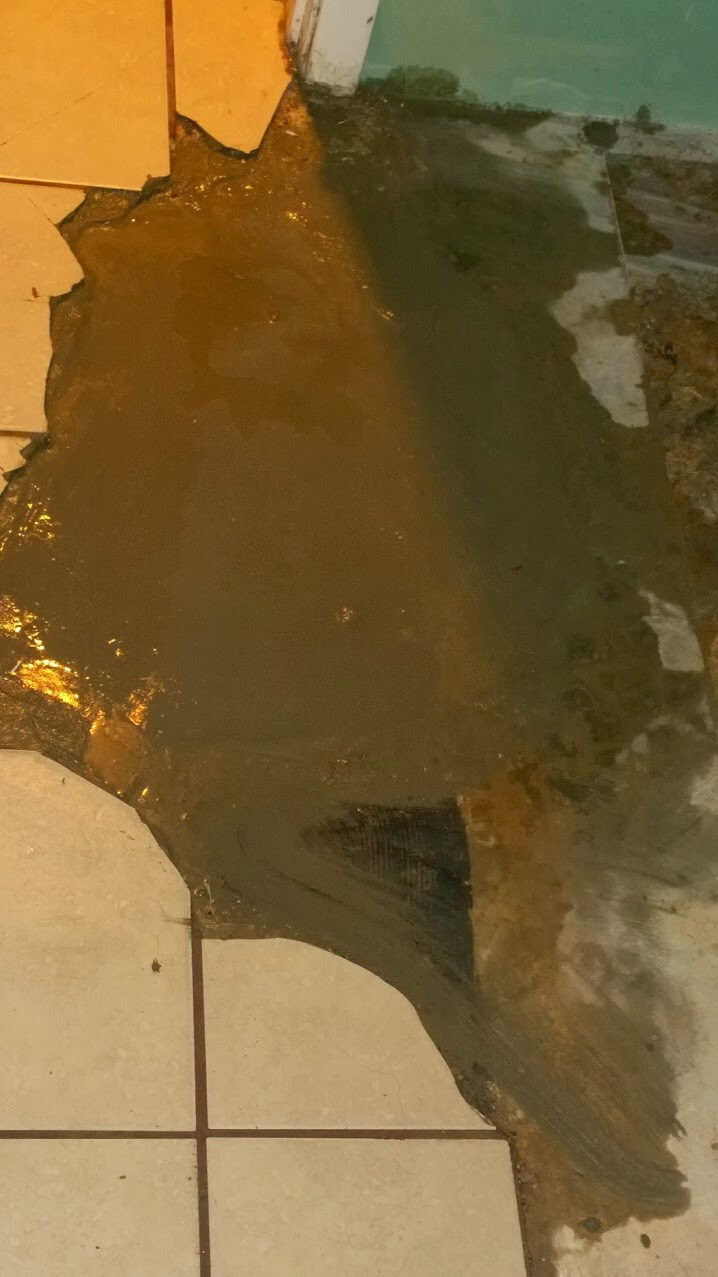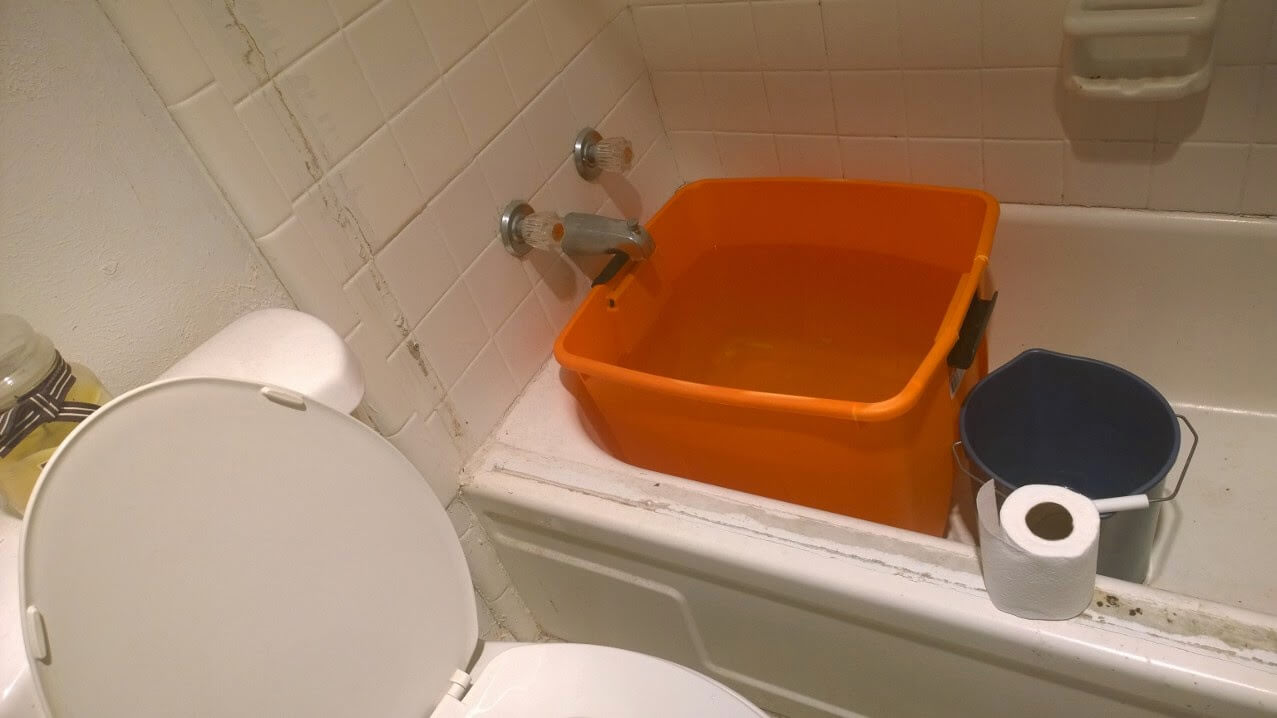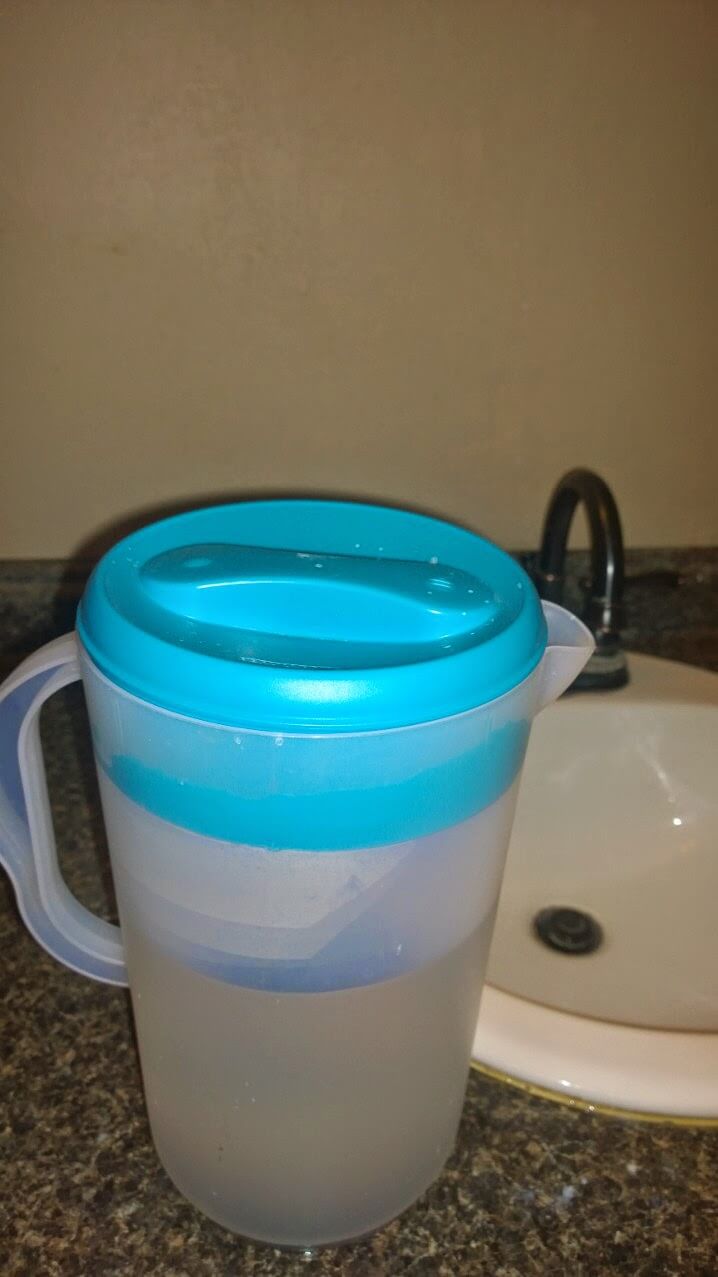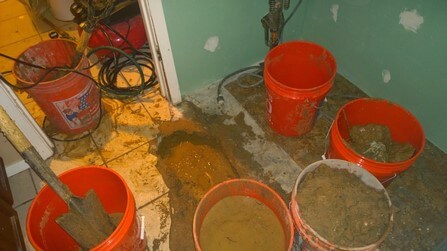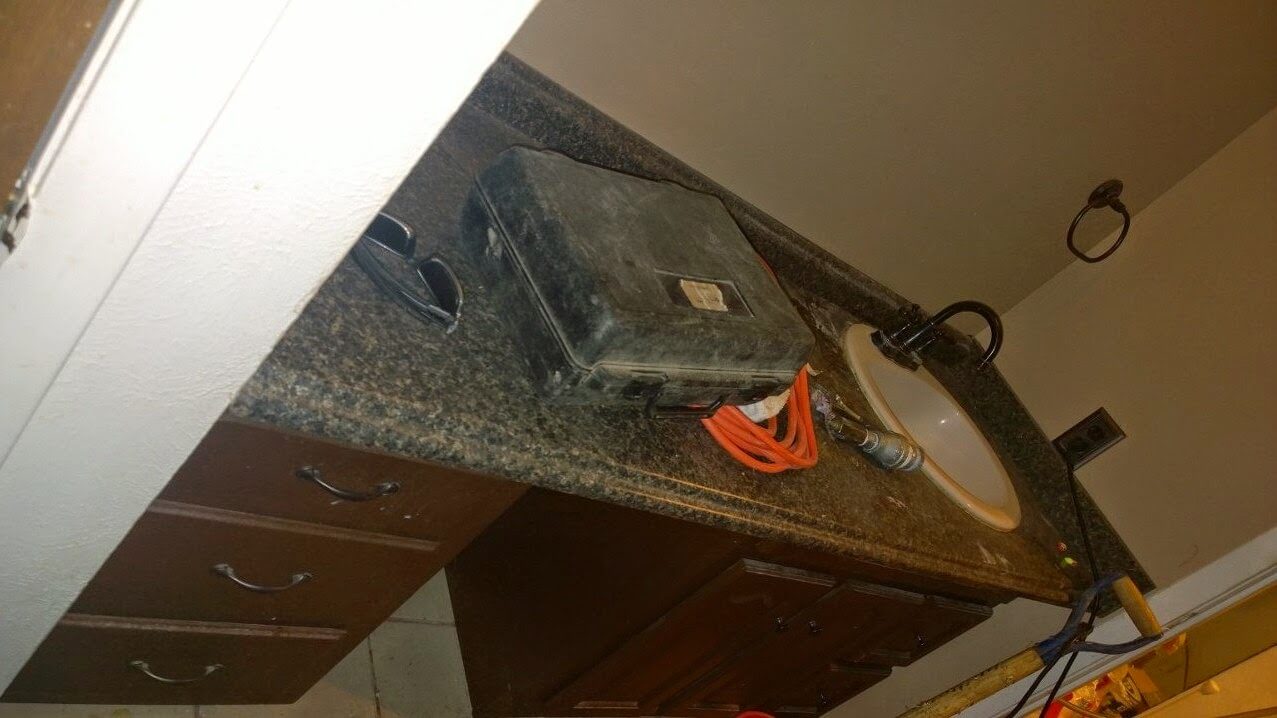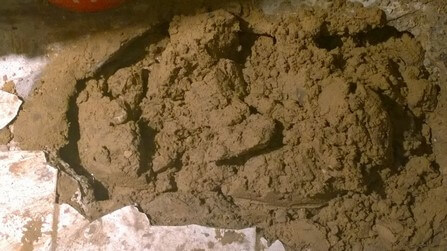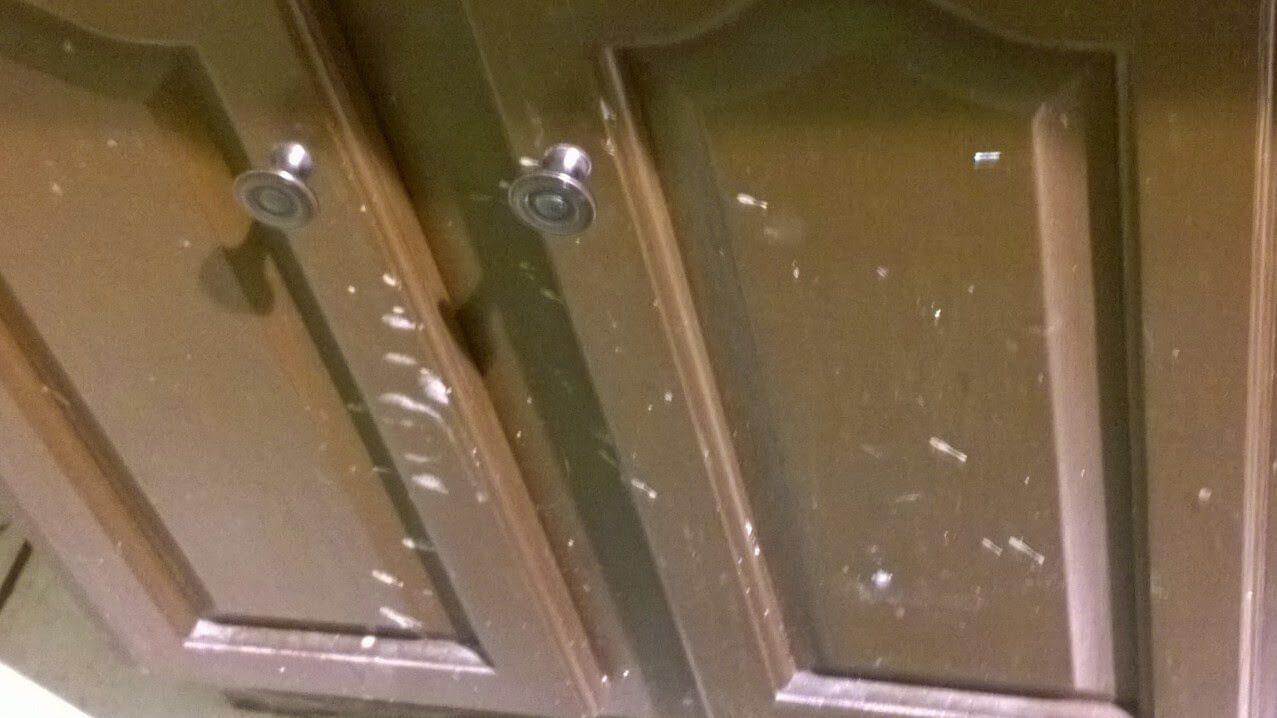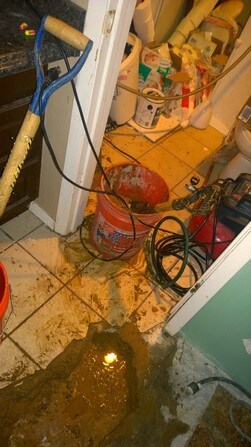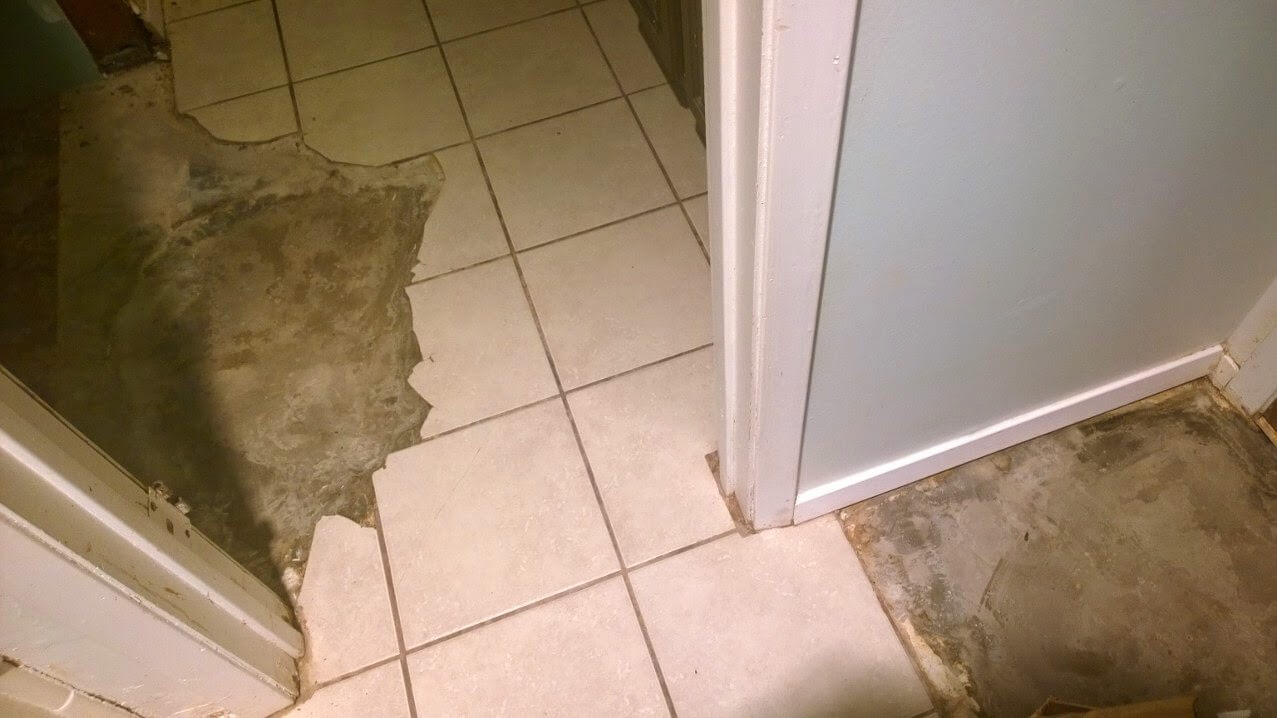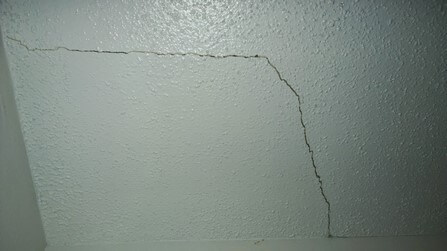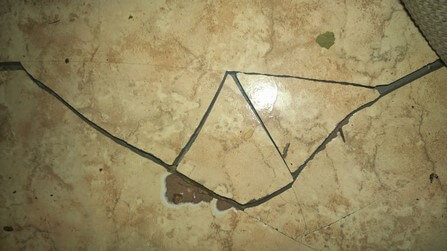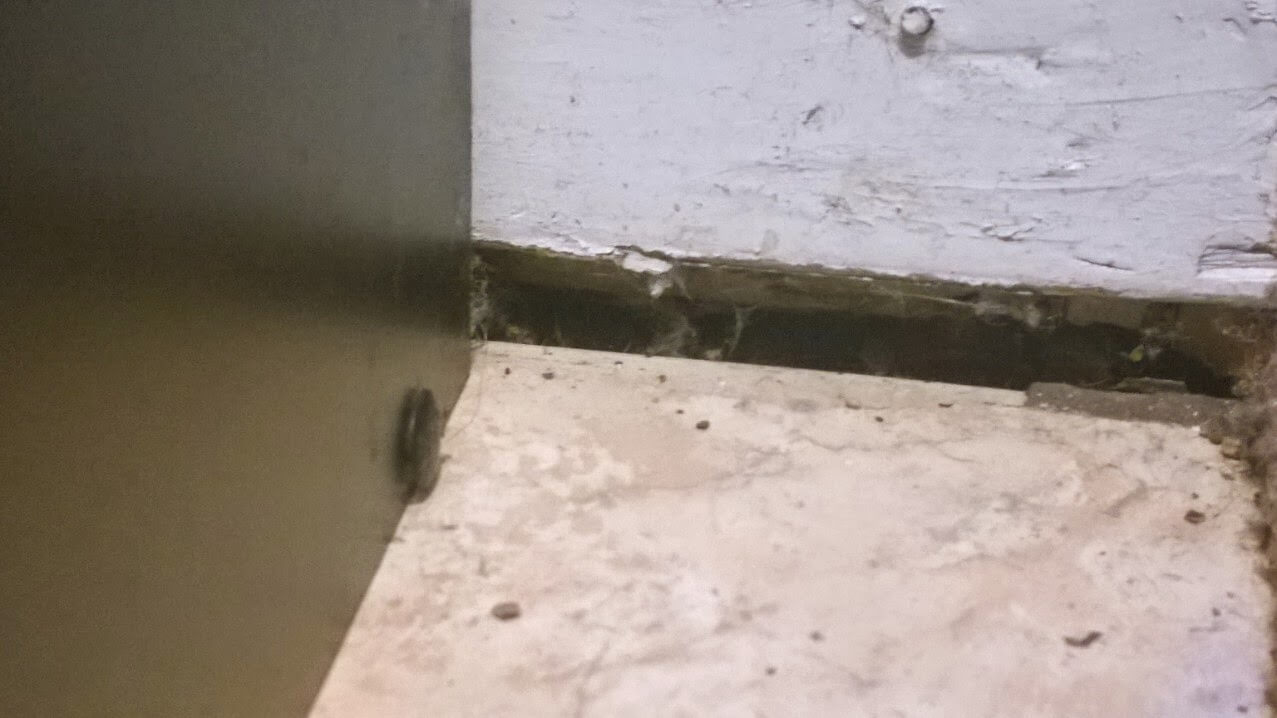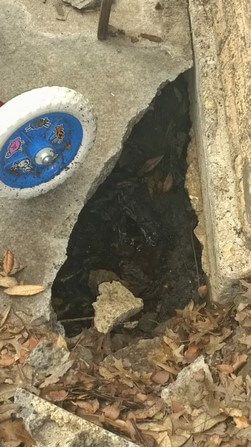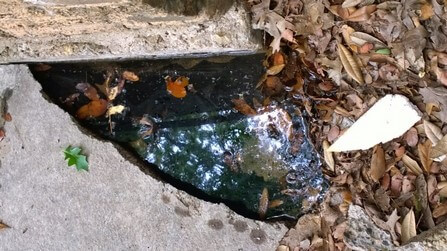If your house is built on a concrete slab, then the plumbing is under the concrete. First, all the plumbing was laid out, then the concrete was poured on, and then the house was built. So if one of those pipes under the slab starts to leak, it isn't easily accessible for repair.
How will you know you have a slab leak?
If your living room starts to resemble a swimming pool, you might have a slab leak. If you start to suspect a child or animal is frequently having accidents in the same spot on the carpet, but they only get wetter when you try to soak them up, you might have a slab leak.
If you notice a high water bill, you might have been especially thirsty that month, or your might have a slab leak. If your water meter is spinning, it might be possessed, or you might have a slab leak.
How will you locate the leak?
If you notice a high water bill, you might have been especially thirsty that month, or your might have a slab leak. If your water meter is spinning, it might be possessed, or you might have a slab leak.
How will you locate the leak?
Water is funny. It can come up in your living room and you may suspect a leak in the kitchen because it is the adjoining room. But you might find out the leak is actually in the bathroom located on the opposite corner of the house. Water will come up at the lowest point. It might come up in the house, the yard, or it may just drain away under the slab and you may never see it at all.
Plumbers will locate the leak by using equipment to listen for it under the slab. Wherever the water sounds the loudest is where they will dig. It's harder to locate if it's a slow leak.
How is it repaired?
First, any flooring above the leak area will be cleared away. Then, "Jack" will pay you a little visit.
You just haven't lived until a hole is being jackhammered into your house.
Once the concrete is cleared, a hole will be dug down to the pipe.
The offending pipe will then be cut out and that section will be replaced. The hole will be filled with sand and new concrete will be poured to fill the hole.
It might look even but when it dries it will shrink. You will probably have to level it out correctly before you install new flooring.
Once the concrete is cleared, a hole will be dug down to the pipe.
The offending pipe will then be cut out and that section will be replaced. The hole will be filled with sand and new concrete will be poured to fill the hole.
It might look even but when it dries it will shrink. You will probably have to level it out correctly before you install new flooring.
Speaking of new flooring. Wait. Just wait. If you happen to have worn out pipes, you may get more than one leak. In fact, repairing one leak may put stress on another weak area and trigger a second leak. Just give it some time to make sure you don't have to repeat the whole process again any time soon. Most of our slab leaks have been followed by a second leak within a month.
How do I prepare?
Let's address the water issue first. You will be without water the day or two of the repair at least. If the leak is bad you may have to limit the time your water is on while you wait for repair day.
Buckets are your friend! Almost as good as real indoor plumbing!! While your water is still on, fill the bathtub with water. If your bathtub doesn't hold water you can fill a large rubbermaid tub. Set a bucket next to it and you have yourself a toilet flusher.
Fill a pitcher of water and place it next to the sink for handwashing.
Another pitcher full of water in the refrigerator and some bottles of water should take care of any drinking/cooking needs. Don't forget to fill the dog and cat water bowls!
Fill a pitcher of water and place it next to the sink for handwashing.
Another pitcher full of water in the refrigerator and some bottles of water should take care of any drinking/cooking needs. Don't forget to fill the dog and cat water bowls!
When you do need to turn on the water be ready. The clothes should already be in the washer, dishwasher unloaded and ready to load etc. Get someone in the shower, start the washing machine, start rinsing those dishes and loading the dishwasher, make everyone use the bathroom, get the rest of the showers done while the dishwasher and washing machine are running, top off all buckets/pitchers/animal bowls. The second all these things are done the water goes off.
Now you can prepare the room with the slab leak. Do yourself a huge favor. Remove EVERYTHING. Slab leak repairs are messy.
I can not stress that enough. MESSY. The jackhammer will deposit concrete dust over every surface.
Remember all that water? Under the concrete is pure mud.
Mud goes everywhere. EVERYWHERE. All over the floor, the walls, the cabinets, doors, ceiling.
On everything and anything. Just get it out of there. Big pain but worth it. Not kidding about everything. Don't forget things like pictures hanging on the walls, mirrors, curtains, any flooring that happens to come up. You can try to cover it all and hope for the best but you are better off removing it. Also, don't get the bright idea to move it into another area of the room because it is sort of sectioned off. It might turn out that the leak is not actually in the spot they located and the plumbers may end up having to dig a second hole in that other area. If that happens you will not have time to move anything.
I can not stress that enough. MESSY. The jackhammer will deposit concrete dust over every surface.
Remember all that water? Under the concrete is pure mud.
Mud goes everywhere. EVERYWHERE. All over the floor, the walls, the cabinets, doors, ceiling.
On everything and anything. Just get it out of there. Big pain but worth it. Not kidding about everything. Don't forget things like pictures hanging on the walls, mirrors, curtains, any flooring that happens to come up. You can try to cover it all and hope for the best but you are better off removing it. Also, don't get the bright idea to move it into another area of the room because it is sort of sectioned off. It might turn out that the leak is not actually in the spot they located and the plumbers may end up having to dig a second hole in that other area. If that happens you will not have time to move anything.
Now wait. Remember what I said about new flooring? Same applies to all the stuff you want to move right back in. Just wait.
What kind of damage can I expect?
You mean in addition to all the damage done by the water flooding your house? And the giant holes dug into your floor wrecking your flooring?
After the first leak or two, you may start to notice some shifting. Cracks may appear in your walls or ceiling. The more leaks, the more cracks.
Another couple of leaks and you might have a hard time shutting some doors. You may have to make some adjustments. As you have more leaks you will just continue to make more adjustments.
Give it a few more leaks and you may start to get cracks in the "good" tile floor. You know the one that was not destroyed by the leak repairs.
The walls may start to pull away from the floor a bit. Further away as more leaks happen.
The walls may start to pull away from the floor a bit. Further away as more leaks happen.
By the time of the seventh leak, you may start to notice a giant sink hole appear in your driveway. This will be accompanied by a few more in the back patio. Piers that were once used to repair the foundation of your house, which was inspected and solid when you bought the house, will sink.
You may suspect that foundation repairs will be necessary. Especially when you feel that crack forming under the carpet in your living room. Of course foundation repairs will probably result in breaking a few pipes under the slab. Perpetuating the cycle.
But before you can even think about all that. You should probably get leak number eight repaired.
On a somewhat unrelated note. Anyone want to buy a house? "As is?"


